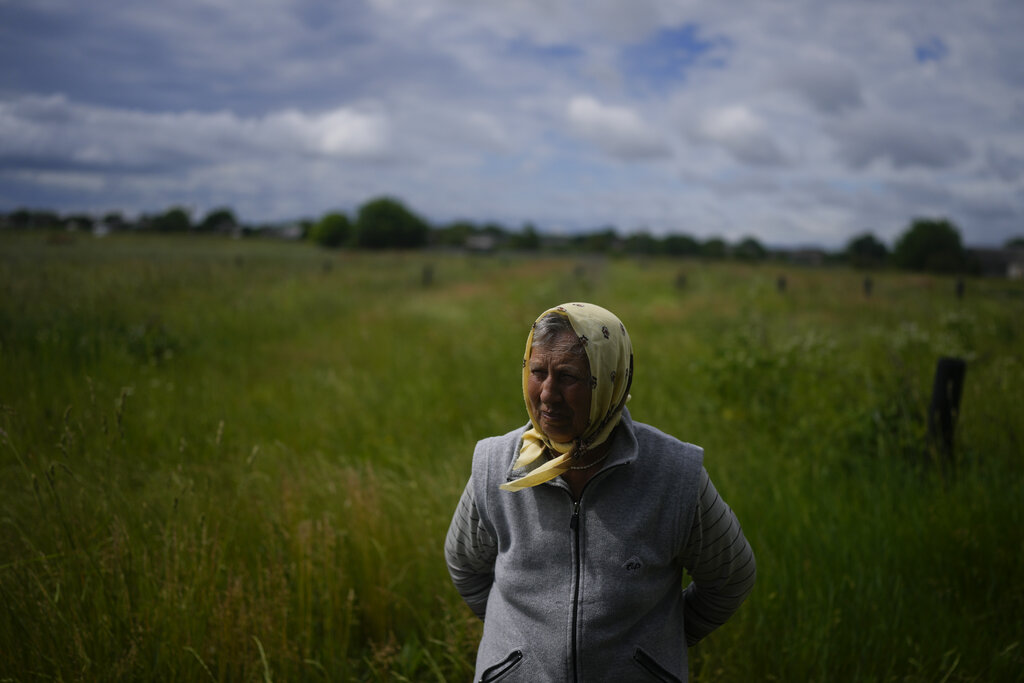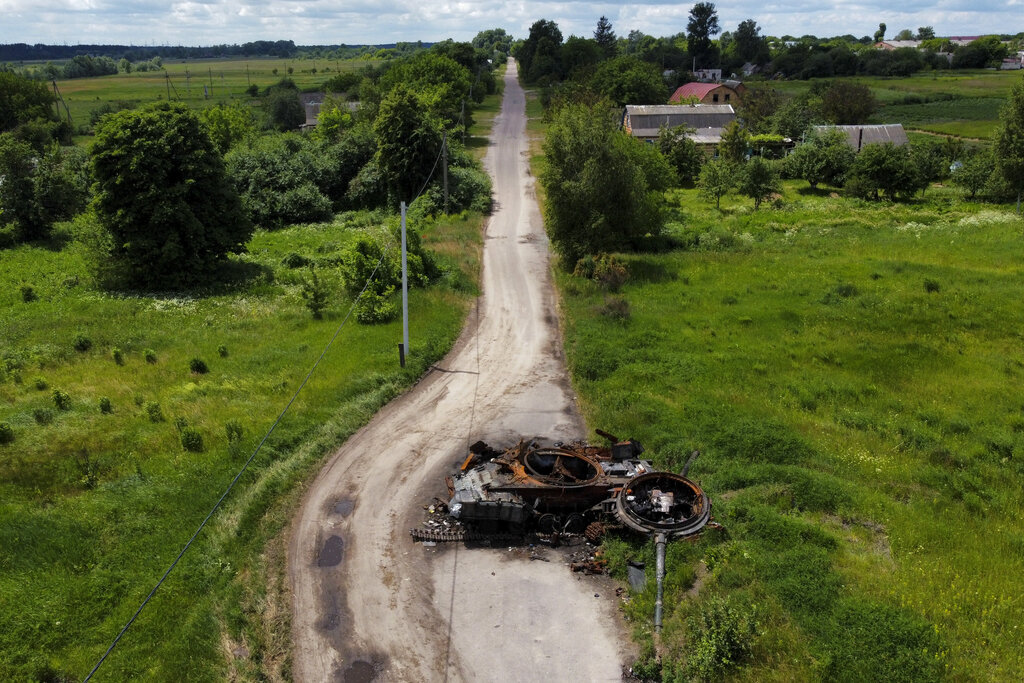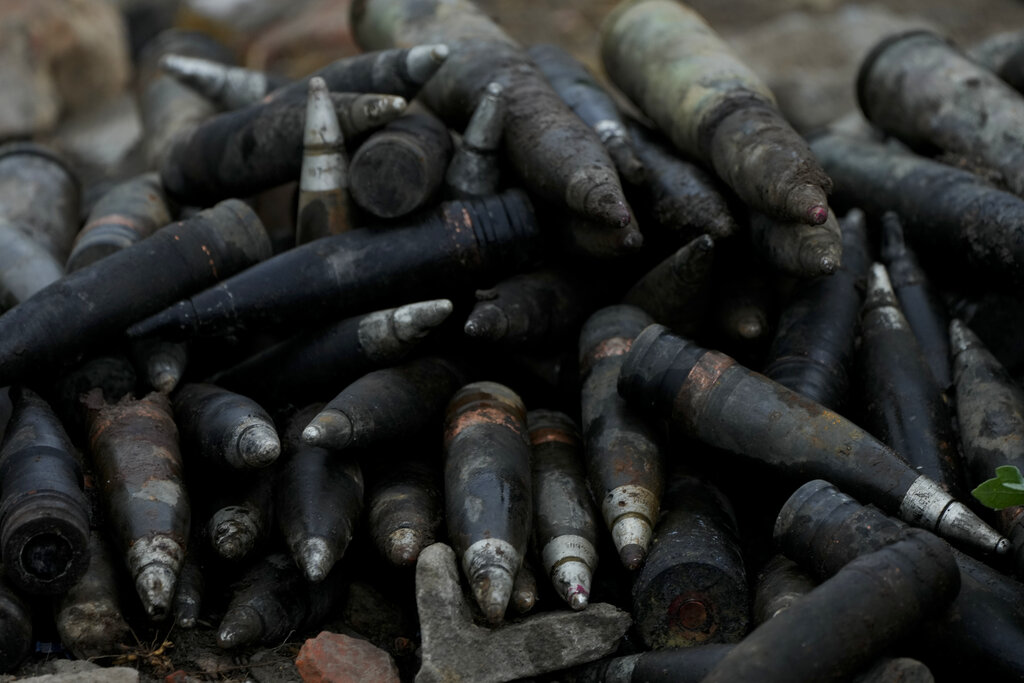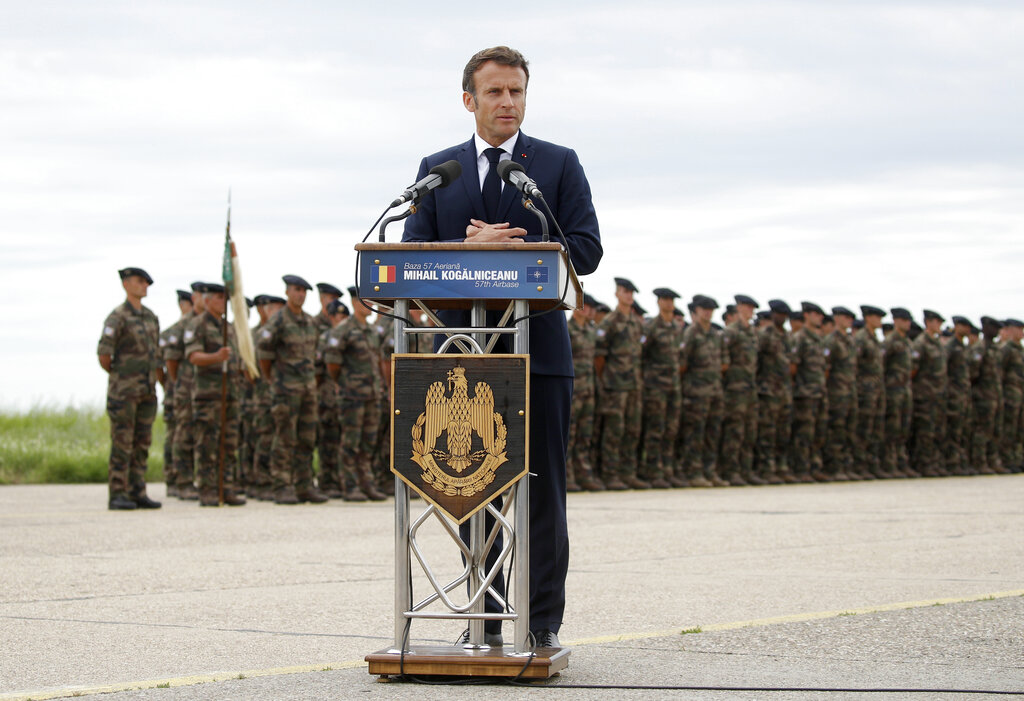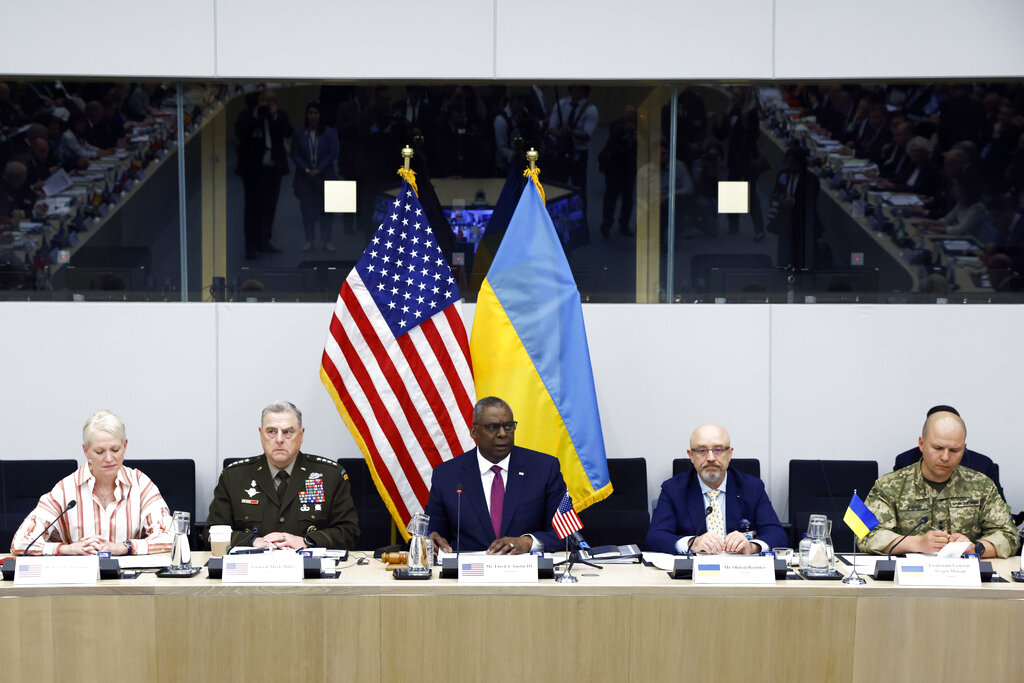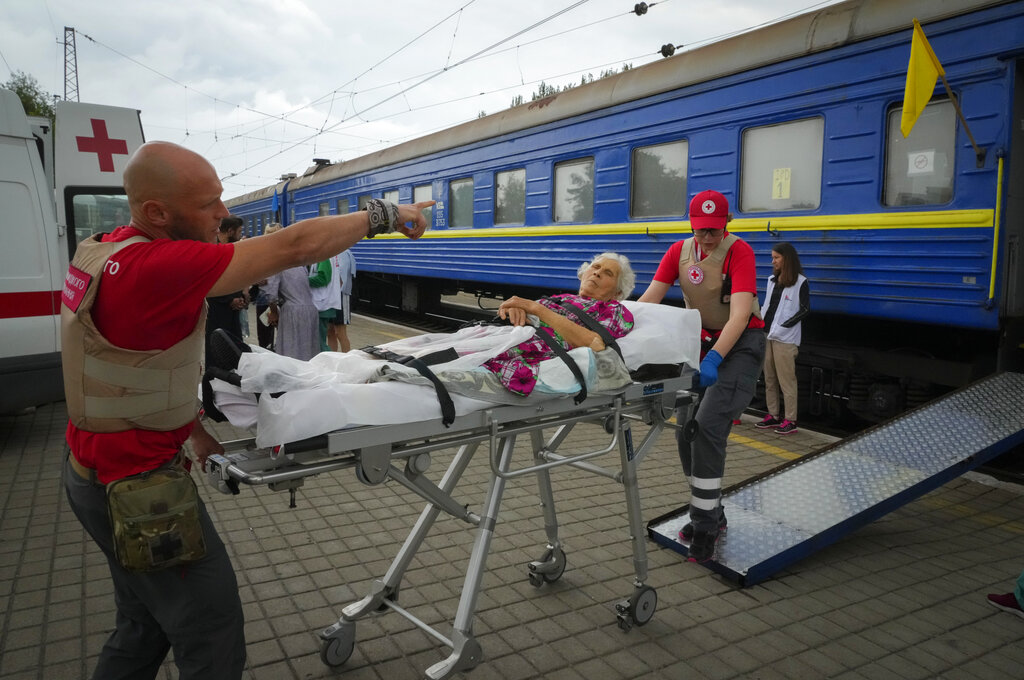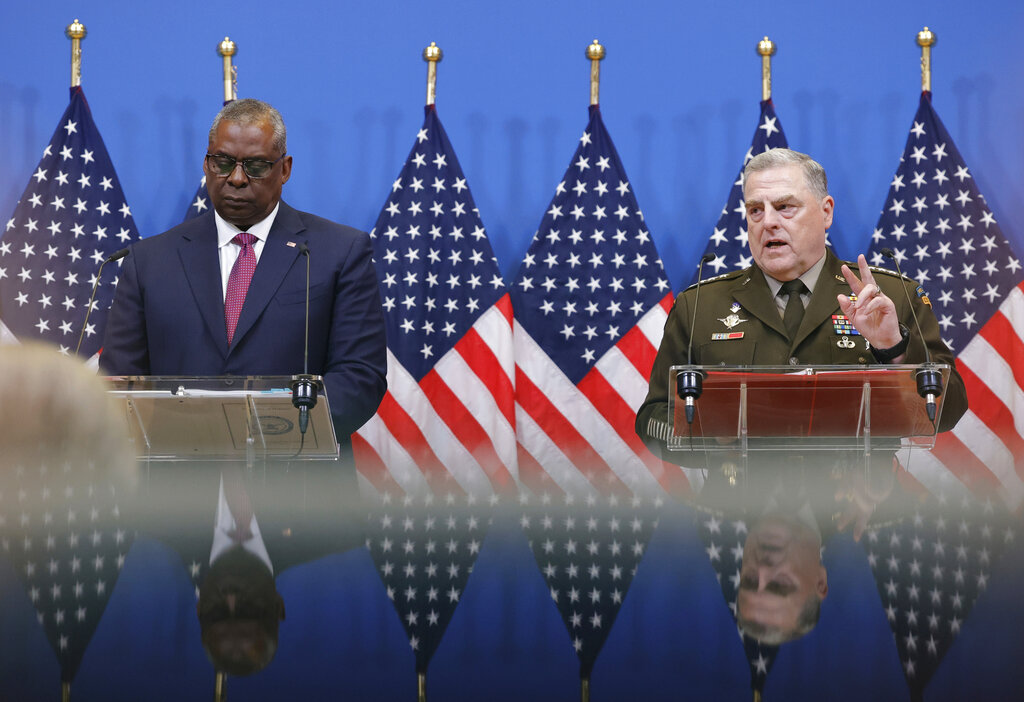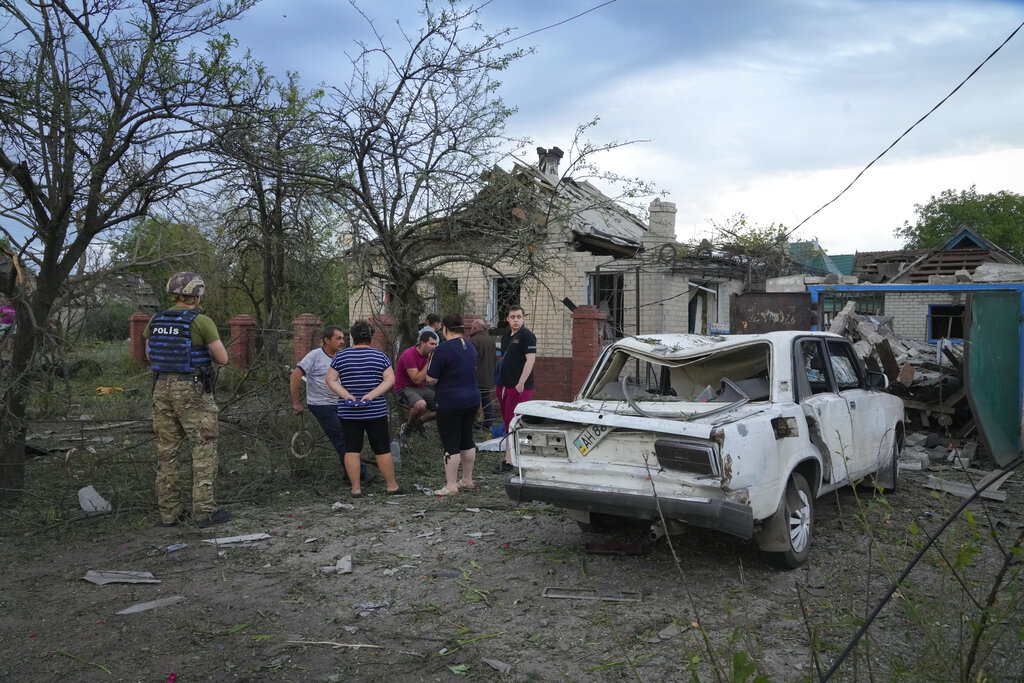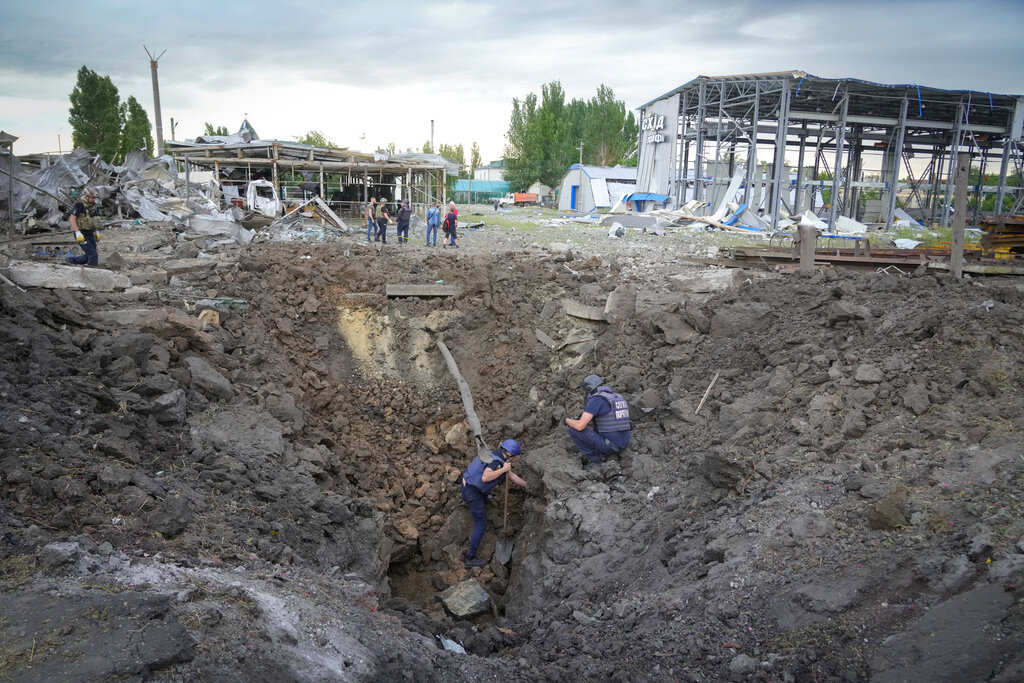US, Germany sending weapons to Ukraine as Russia advances
KYIV, Ukraine (AP) — The Russian military said it used long-range missiles Wednesday to destroy a depot in the western Lviv region of Ukraine where ammunition for NATO-supplied weapons was stored, and the governor of a key eastern city acknowledged Russian forces are advancing in heavy fighting.
The battle for Sievierodonetsk in Ukraine’s eastern Donbas area has become the focus of Russia’s offensive in recent weeks.
Russia-backed separatists accused Ukrainian forces of sabotaging an evacuation of civilians from the city’s besieged Azot chemical plant, where about 500 civilians and an unknown number of Ukrainian fighters are believed to be sheltering from missile attacks. It wasn’t possible to verify that claim.
Russian officials had announced a humanitarian corridor from the Azot plant a day earlier, but said they would take civilians to areas controlled by Russian, not Ukrainian, forces.
The Ukrainian governor of Luhansk, Serhiy Haidai, told The Associated Press that “heavy fighting in Sievierodonetsk continues today as well.” The Luhansk and Donetsk regions make up the Donbas.
The situation in the city is getting worse, Haidai said, because Russian forces have more manpower and weapons. “But our military is holding back the enemy from three sides at once,” he added.
In the Lviv region near the border with NATO member Poland, Russian forces used high-precision Kalibr missiles to destroy the depot near the town of Zolochiv, Russian Defense Ministry spokesman Igor Konashenkov said. Konashenkov said shells for M777 howitzers, a type supplied by the United States, were stored there. He said four howitzers were destroyed elsewhere and that Russian airstrikes also destroyed Ukrainian “aviation equipment” at a military aerodrome in the southern Mykolaiv region.
Ukrainian officials did not immediately comment on the Zolochiv strike.
While focusing most of their attacks on eastern Ukraine, where they are trying to capture large swaths of territory, Russian forces have also been hitting more specific targets elsewhere, using high-precision missiles to disrupt the international supply of weapons and destroy military infrastructure. Civilian infrastructure has been bombarded as well, even though Russian officials have claimed they’re only targeting military facilities.
In the northeastern Sumy region, the governor said two helicopters flying in from nearby Russian territory fired five missiles late Wednesday around the city of Hlukhiv. A residential building was hit, killing one person and wounding six, and other infrastructure was damaged, Gov. Dmytro Zhyvytskyy said on Telegram.
Early Thursday, loud explosions were heard in the city of Sumy while air raid sirens were going off, and the mayor urged residents to remain in bomb shelters and not to publicize any information about what was hit.
NATO members are pledging to send more and longer-range weapons to Ukraine.
President Joe Biden said Wednesday the U.S. will send an additional $1 billion in military aid, the largest single tranche of weapons and equipment since the war began. The aid will include anti-ship missile launchers, howitzers and more rounds for the High Mobility Artillery Rocket Systems — all key weapons systems that Ukrainian leaders have urgently requested.
Germany is providing Ukraine with three multiple launch rocket systems of the kind that Kyiv has said it urgently needs to defend itself against Russia’s invasion. Defense Minister Christine Lambrecht said Wednesday that Germany will transfer three M270 medium-range artillery rocket systems along with ammunition.
Germany said the transfer, which echoes similar moves by Britain and the United States, will be accompanied by training and will have “a swift and significant battlefield impact.”
In recent days, Ukrainian officials have spoken of the heavy human cost of the war, with Kyiv’s forces outgunned and outnumbered in the east.
Ukrainian President Volodymyr Zelenskyy thanked Biden for the new aid package.
“The security support of the United States is unprecedented,” he said, reporting on a phone call the two leaders held earlier Wednesday. “It brings us closer to a common victory over the Russian aggressor.”
Zelenskyy said he has accepted invitations to speak at the NATO and Group of Seven summits at the end of the month.
“During the 112 days of this war, the Ukrainian army has proved that courage and wisdom on the battlefield, together with the ability to tactically outmaneuver the enemy, can have a significant result, even despite the Russian army’s significant advantage in number of soldiers and equipment,” he said in his nightly video address.
“Of course we are doing everything we can to overcome this advantage. Every day I fight for Ukraine to receive the weapons and equipment we need.”
Meanwhile, Dmitry Medvedev, the deputy chair of Russia’s Security Council, ominously suggested that Russia is intent on not just claiming territory but eliminating Ukraine as a nation. In a Telegram post, he wrote that he saw Ukraine wants to receive liquefied natural gas from its “overseas masters” with payment due in two years.
He added: “But there’s a question. Who said that in two years, Ukraine will even exist on the map?”
Mykhailo Podolyak, an adviser to Zelenskyy, responded on Twitter: “Ukraine has been and will be. Where will Medvedev be in two years? That’s the question.”
In other developments, Turkish Foreign Minister Mevlut Cavusoglu said it may be possible to create secure corridors to transport Ukrainian grain through the Black Sea without the need to clear sea mines near Ukrainian ports.
Cavusoglu’s comments Wednesday came a week after he discussed with his Russian counterpart Sergey Lavrov a U.N. plan to open up Odesa and Ukraine’s other Black Sea ports to allow millions of tons of grains to be shipped to world markets.
Russia has demanded that Ukraine remove mines from the Black Sea before grain exports can resume by ship. Ukraine rejects the proposal, insisting it would leave its ports vulnerable to Russian attacks.
Cavusoglu told reporters that since the location of the mines is known, it would be possible to establish “secure corridors” that avoid them. Turkey, Russia and Ukraine have appointed military officers and set up a telephone hotline to try to overcome hurdles over crop exports.
U.N. spokesperson Stéphane Dujarric welcomed Cavusoglu’s comments as “extremely positive” but declined to discuss the plan.










